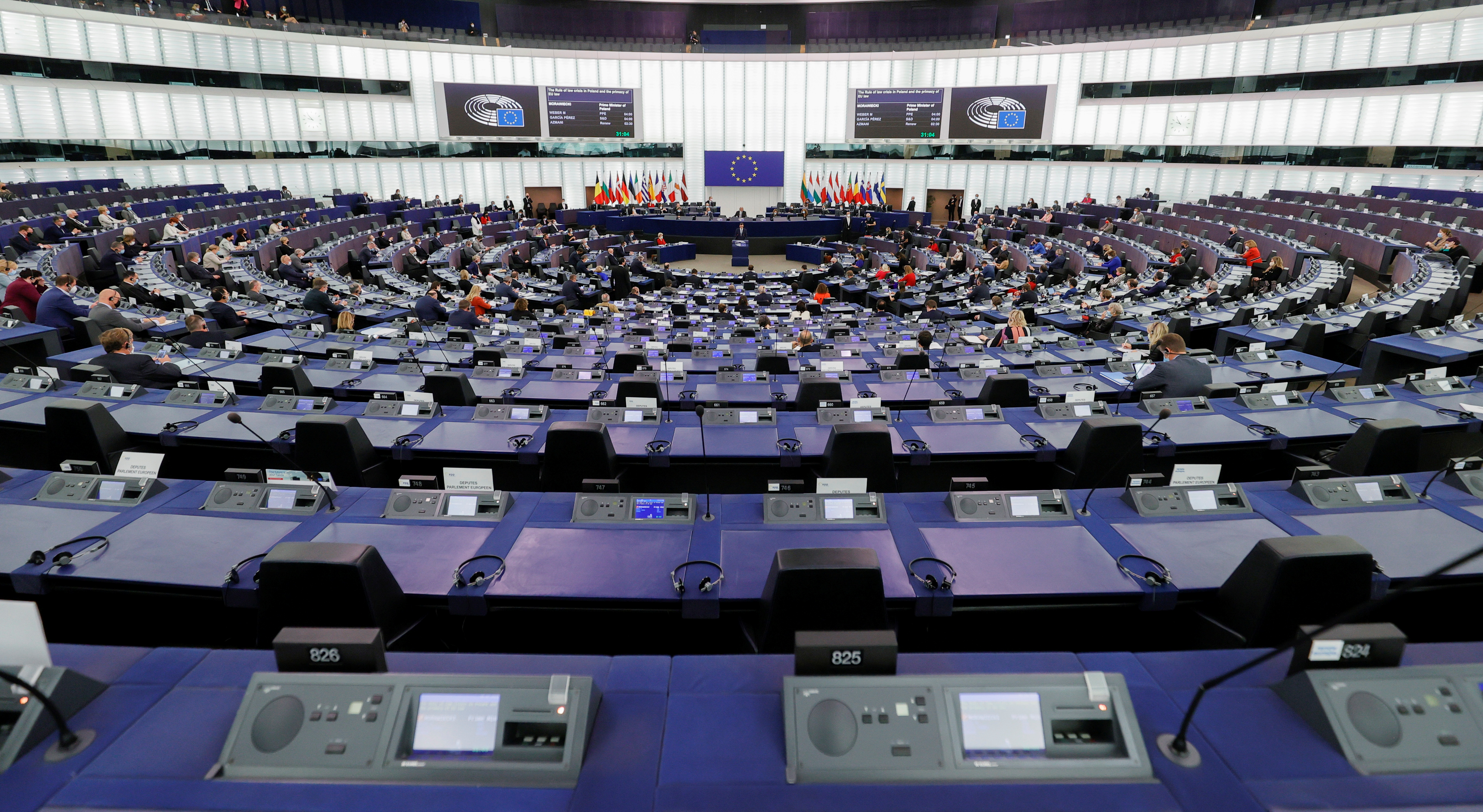European Parliamet adopts Resolution on BiH, calls for accelerated reforms

MEPs in the Foreign Affairs Committee adopted the report on Bosnia and Herzegovina, Tuesday, with 63 votes in favour, 9 against and three abstentions, calling on BiH to accelerate reforms and fully move towards the path of European integration, turning back retrograde activities and rhetoric.
Oglas
The report notes that BiH's path to the EU must be based on "functional democratic institutions, rule of law, the fight against corruption and organized crime, free media, respect for basic rights and non-discrimination for all citizens."
The text condemns the "inflammatory rhetoric and secessionist policy of the leadership of the Republika Srpska (RS) entity, including the celebration of the so-called RS Day", pointing out that such activities "destabilize BiH".
"It is time to take advantage of the opportunity and make progress in political and socio-economic reforms in BiH," Rangel stated in his report, among other things, whose rhetoric was further sharpened by the agreed amendments that became its integral part.
One of the agreed amendments states:
"We strongly condemn the visit of
RS President] Milorad Dodik and Nenad Stevandic to Moscow on May 23 and 24, 2023 and the meetings they held with Vladimir Putin and other high-ranking officials of Russian politics, we reject the statements and rhetoric expressed on that occasion and remain seriously concerned about the security consequences arising from close relations with high-ranking Russian officials, we condemn the high-level meetings with representatives of Iran and the abstention during the vote on that country, despite serious violations of human rights in that country and the delivery of drones to Russia in the context of its war against Ukraine, and we ask Bosnia and Herzegovina to distances itself from anti-democratic regimes."
With amendments, MEPs ask the European Council to sanction Dodik and other officials, both from the RS and from other countries, who promote or support secessionist policies.
Although they express their support for the High Representative and the changes to the Election Law, the MEPs express their concern about the time in which these changes were adopted, the transparency of the process and the lack of consultation about it, and called on the Office of the High Representative to work in accordance with the received mandate, preventing political divisions and tensions in the country and the region and emphasize that the Bonn powers should only be used as a last resort.
European Parliament resolutions are not binding, but they represent a strong political message and one of the bases for further analysis of the accession process in European institutions, as part of the integration process.
Kakvo je tvoje mišljenje o ovome?
Učestvuj u diskusiji ili pročitaj komentare
Oglas
Kakvo je tvoje mišljenje o ovome?
Učestvuj u diskusiji ili pročitaj komentare
Oglas
NAJČITANIJE
Oglas
Oglas
Najnovije
Oglas
Oglas





 Srbija
Srbija
 Hrvatska
Hrvatska
 Slovenija
Slovenija



























































